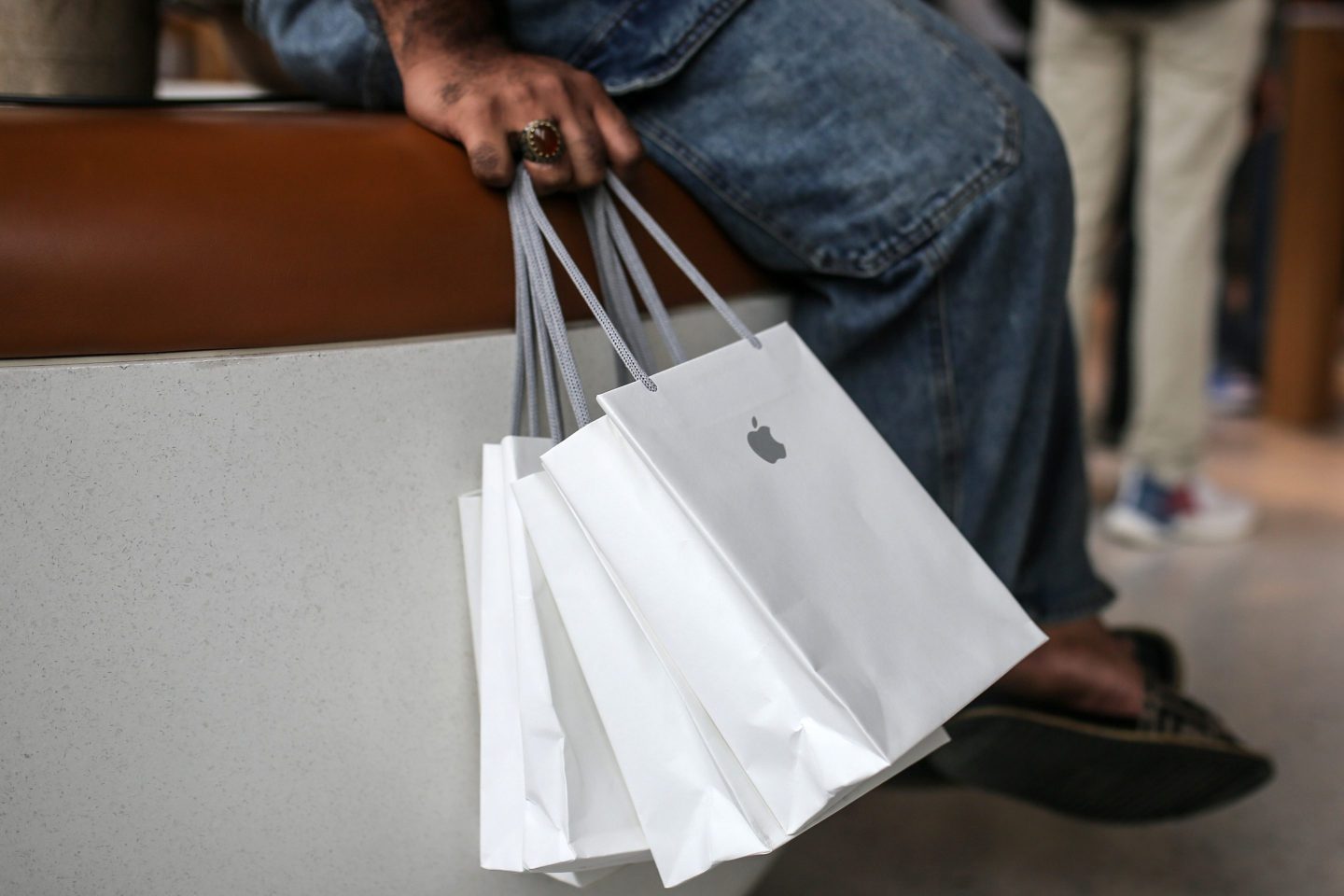Good morning. Thomas J. Watson Jr. was born on this day in 1914.
The son of IBM’s founder, Watson took Big Blue’s reins in 1956 and made a critical decision: to ditch electromechanical punch card systems, then the company’s bread and butter, in favor of electronic computers—which, in his words, didn’t fire his father’s imagination.
By the time Watson retired 15 years later, businesses were silicon-obsessed and IBM’s annual sales were more than 250 times (!) what they were when he took the top job. No wonder Fortune put him on a cover in 1987 with the declaration, “The Greatest Capitalist in History.”
Today’s news below. —Andrew Nusca
Want to send thoughts or suggestions to Data Sheet? Drop a line here.
China evaluates sale of TikTok U.S. to Elon Musk, report says

Chinese officials are reportedly evaluating the option for Elon Musk to acquire the U.S. operations of TikTok if the social media company fails to resist the Biden administration’s divest-or-ban order.
Bloomberg reports that Beijing officials “strongly prefer that TikTok remains under the ownership of parent ByteDance” but that may not be possible if the U.S. Supreme Court upholds the law by favoring national security grounds over concerns about freedom of speech. A ban would take effect Jan. 19.
TikTok called the report “pure fiction.”
According to Bloomberg, one scenario that Chinese officials have discussed is allowing Musk-owned X, the service formerly known as Twitter, to take control of TikTok U.S. The combined entity might carry more sway with advertisers and may benefit from the data capabilities of Musk’s other companies, including xAI.
That Musk has proven to be a close Trump ally is apparently attractive to the Chinese government, though “it’s not clear how much ByteDance knows about the Chinese government discussions or whether TikTok and Musk have been involved,” the report notes.
It’s also unclear how Musk would finance the transaction. The entrepreneur paid $44 billion for Twitter in 2022 and has yet to clear his debts. —AN
Apple’s first chips from TSMC's Arizona plant are almost ready
Apple is nearly finished verifying the first cutting-edge processor chips made in Taiwan Semiconductor Manufacturing Co.'s plant in north Phoenix, according to a Nikkei Asia report.
The first batch of chips—said to be Apple’s Arm-based A16 Bionic model, used in iPhone 14 Pro, 14 Pro Max, 15, and 15 Plus—is reportedly expected “as early as this quarter.”
It’s a big deal for both companies. The Arizona plant gives Apple (and other TSMC clients like AMD, Nvidia, and Qualcomm) a made-in-America option for its components as the incoming President-elect threatens aggressive tariffs on goods made overseas.
Meanwhile a successful run with Apple is a compelling story for TSMC to bring to other chip designers as the world’s largest semiconductor manufacturer deepens its investment in the U.S. About 70% of TSMC's sales are made to U.S. companies.
TSMC’s Arizona operation cost the company some $65 billion and benefits from a $6.6 billion CHIPS Act grant from the Biden administration. It is focused on manufacturing the smallest microchips, used in AI applications and “smart” mobile devices. —AN
Can Bluesky help billionaire-proof social media?
Speaking of social media: What do you get when you combine Hollywood stars like Mark Ruffalo and Alex Winter with Wikipedia’s Jimmy Wales and a bunch of decentralized-tech geeks? A campaign to billionaire-proof such services.
With Elon Musk lording over X and Mark Zuckerberg setting fire to content moderation on Facebook and Instagram, the push is timely.
It’s based on Bluesky’s AT Protocol, which the ascendant public benefit corporation created, uses, and largely runs. The screen and tech stars are raising cash to build out new infrastructure and fund new social networks to run on top of it, using the decentralized protocol.
That means that, if venture-funded Bluesky itself becomes a billionaire’s plaything one day, its users would be able to simply jump ship to one of these new alternatives, taking all their content and their relationships with them.
Bluesky is fine with this, even if it isn’t involved in the Free Our Feeds campaign. “Users will have more choice and an improved experience,” CEO Jay Graber told me. —David Meyer
More data
—Microsoft creates “Core AI” unit. Led by Jay Parikh, the team will build AI tools used to create applications.
—T-Mobile buys Vistar Media for $600m. Adtech: Hot again!
—Databricks secures $5 billion in debt. The San Francisco AI company was last valued at $62 billion.
—Sonos CEO gets the boot. Patrick Spence out, Tom Conrad in after an app update turned into a nightmare.
—Starlink disrupts Kenya’s ISPs. Faster speeds and lower prices leaves incumbents scrambling.
—Texas sues Allstate over data collection. Did the insurer track driving behavior through mobile apps?
—IAC will spin off Angi. The home improvement marketplace once known as Angie’s List will go independent in Q2.
—The worst gadgets at CES weren’t repairable, sustainable, or private. Joy!
—Snap CEO’s emotional letter to LA in the wake of continued wildfires.














